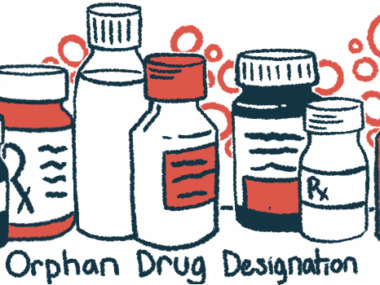Ziftomenib leads to complete remission in 23% of AML patients
Phase 2 KOMET-001 study 92 enrolled refractory, relapsed patients
Written by |

Nearly 1 in 4 people with NPM1-mutated acute myeloid leukemia (AML) achieved complete remission after treatment with ziftomenib in a Phase 2 clinical trial.
Dubbed KOMET-001 (NCT04067336), the Phase 1/2 trial enrolled participants whose cancer was refractory, meaning it had failed to respond to prior treatments, or relapsed, that is, it came back after initially responding to other treatments. Ziftomenib’s developers Kura Oncology and Kyowa Kirin have asked the U.S. Food and Drug Administration (FDA) to approve the therapy for adults with relapsed or refractory AML with a NPM1 mutation, based on the data. A decision is expected by Nov. 30.
“We are delighted to announce positive pivotal data from the KOMET-001 trial in [relapsed or refractory] NPM1-mutated AML patients treated with ziftomenib,” Troy Wilson, PhD, president and CEO of Kura, said in a company press release. “With these encouraging results … we and our partners at Kyowa Kirin look forward to supporting FDA with its review of the ziftomenib new drug application and are well-positioned to meaningfully impact relapsed or refractory patients with NPM1 mutations.”
AML is an aggressive form of blood cancer. In nearly a third of cases, leukemia cells carry a mutation in the NPM1 gene. Ziftomenib is an investigational therapy that targets a protein called menin that plays a key role in supporting the growth and survival of certain AML cells, including those with NPM1 mutations, which are “among the most common in AML, representing approximately 30% of cases, and there are no FDA-approved therapies specifically for this patient population,” Wilson said.
Results of KOMET-001 study
In the Phase 2 portion of KOMET-001, 92 adults with relapsed or refractory NPM1-mutant AML were treated with ziftomenib, about a third having previously received three or more other lines of therapy and more than half having been treated with the AML therapy Venclexta (venetoclax).
Results presented this month at the 2025 American Society of Clinical Oncology (ASCO) Annual Meeting in Chicago, showed that 21 (23%) of the patients achieved complete remission, meaning their cancer went away. Of them, 13 saw their blood cell counts return to around normal ranges, while eight had partial hematological recovery, meaning some blood cell counts remained low even though their cancer went away.
The median duration of complete remission in the 21 patients was slightly less than four months. Of 19 patients assessed for minimal residual disease, 12 were negative, meaning they didn’t have any detectable cancer cells.
“The data presented at ASCO strengthen our conviction that ziftomenib has potential to become a meaningful treatment option for patients with relapsed or refractory AML with NPM1 mutations — patients who often face limited treatment options and significant uncertainty regarding their prognosis,” said Takeyoshi Yamashita, PhD, executive vice president and chief medical officer of Kyowa Kirin.
Rates of complete remission were similar across different patient subgroups, including those whose cancer cells harbored other mutations and those who’d previously received other AML treatments, including Venclexta or stem cell transplant.
“The promising results for ziftomenib in this heavily pretreated population are highly encouraging,” said Eunice Wang, MD, of Roswell Park Comprehensive Cancer Center in Buffalo, New York. “Notably, the clinically meaningful minimal residual disease (MRD)-negative responses observed as well as the similar response rates seen regardless of prior therapies … hold great promise for the potential use of ziftomenib in patients with relapsed and refractory NPM1-mutated AML.”
The median overall survival time was 16.4 months for those who responded to ziftomenib, that is, those whose cancer burden decreased at least partly following treatment. The median overall survival was 3.5 months for those who didn’t respond.
Safety data from 112 patients treated in the Phase 2 part of the study and its earlier Phase 1 portion showed that 13% had a serious inflammatory reaction called differentiation syndrome that can occur with some AML drugs. According to Kyowa and Kura, all these reactions were well managed by protocol-specified mitigation strategies, and none were very severe or fatal.
“Beyond ziftomenib’s clinical activity, we are highly encouraged by its consistent safety and tolerability profile,” said Mollie Leoni, MD, chief medical officer of Kura. Leoni added that these data “underscore ziftomenib’s potentially favorable benefit-risk profile for patients with relapsed or refractory NPM1-mutated AML.”




